Cream Bourke Parrot for sale
Bird Description & Information:
-
Price:
Cream Bourke Parrot for sale at $500 each.
-
Age:
(Baby 3-6 months) (Juvenile 7-11 months) (Adult 12-18 months) Age varies, depending which bird is chosen.
-
Color:
Pink, Blue, Yellow, Grey, & White
-
Life Span Average:
15+ years
-
Size Average:
Small 7-8 inches
-
Weight Average:
90 grams
-
Noise Level:
Quiet, Perfect for apartment
-
Personality:
Calm & Gentle
-
Scientific Name:
Bourke Parrot (Neophema Bourkii)
-
Origin or Natural Habitat:
Queensland, New South Wales, central, southern, and western Australia.
-
Gender Differentiation:
Standard Bourke Males have a vibrant blue band above the eyes, while Standard Bourke Females either don’t have blue bands or have a very dull blue bands over the eyes. On both Standard & Mutation Bourkes the Males have up right posture & strut, while Bourke Females have a lowered posture & don’t strut. However these are just indications differentiating Males & Females, this doesn’t guarantee gender of birds. When ordering Bourkes please select DNA option to guarantee the gender of the Bourke Parakeets/Parrots, Bourke Parakeets/Parrots can be homomorphic, especially on mutations. If client chooses not to opt-in for DNA, the ParrotCrown.com Avian Specialist Team does their best to select the right birds for our clients based off experience, physical traits, & personality traits.
-
Diet:
Seeds, Pellets, Fruits, and Vegetables shall all be provided 24/7 & be balanced. Cuttle Bone must provided for calcium and vitamin blocks for vitamins. Also water soluble vitamins are optimal, such as the brand Nekton.
-
Care:
Its optimal to have wide cage with 1/4-1/2 inch bar spacing, for enough space to play. Filled Food & Water bowls are needed 24/7 for the bird to stay healthy and hydrated. Toys are a must and treats for the bird to be happy. At least once a week or more, offer a bath in shallow water or mist the bird. Exercise is needed for 2-3 hours a day, let the bird spread its wings and flap its wings to exercise wing muscles. Let the bird walk and climb to exercise legs and feet, also let the bird chew on toys to work on jaw muscles.
-
Caution:
Small can get lost or get stepped on.
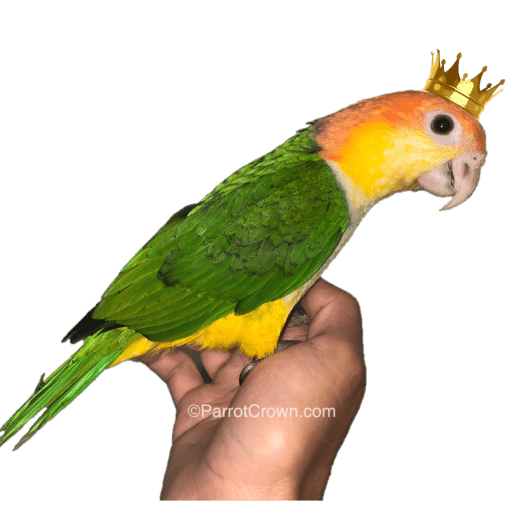
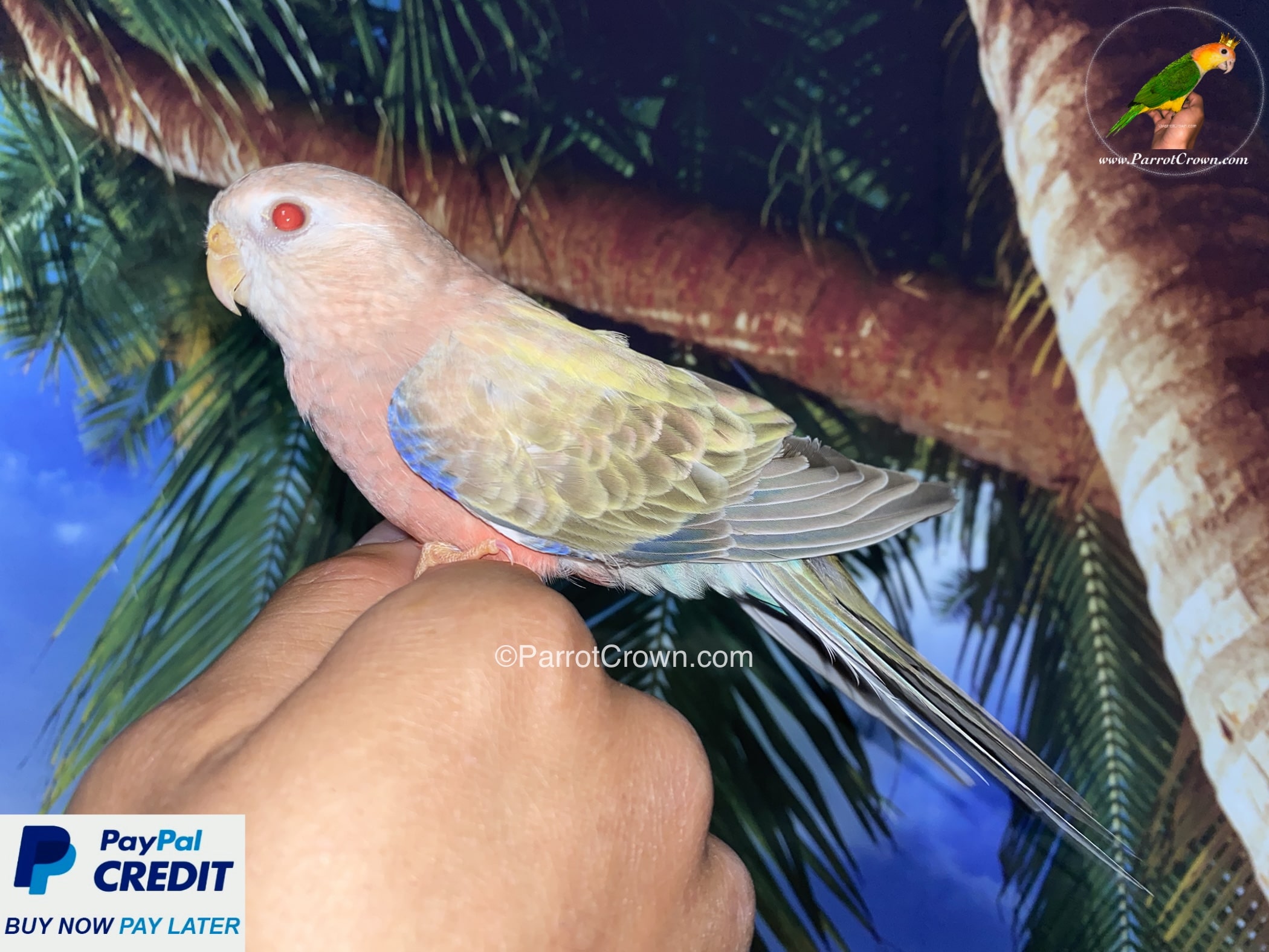
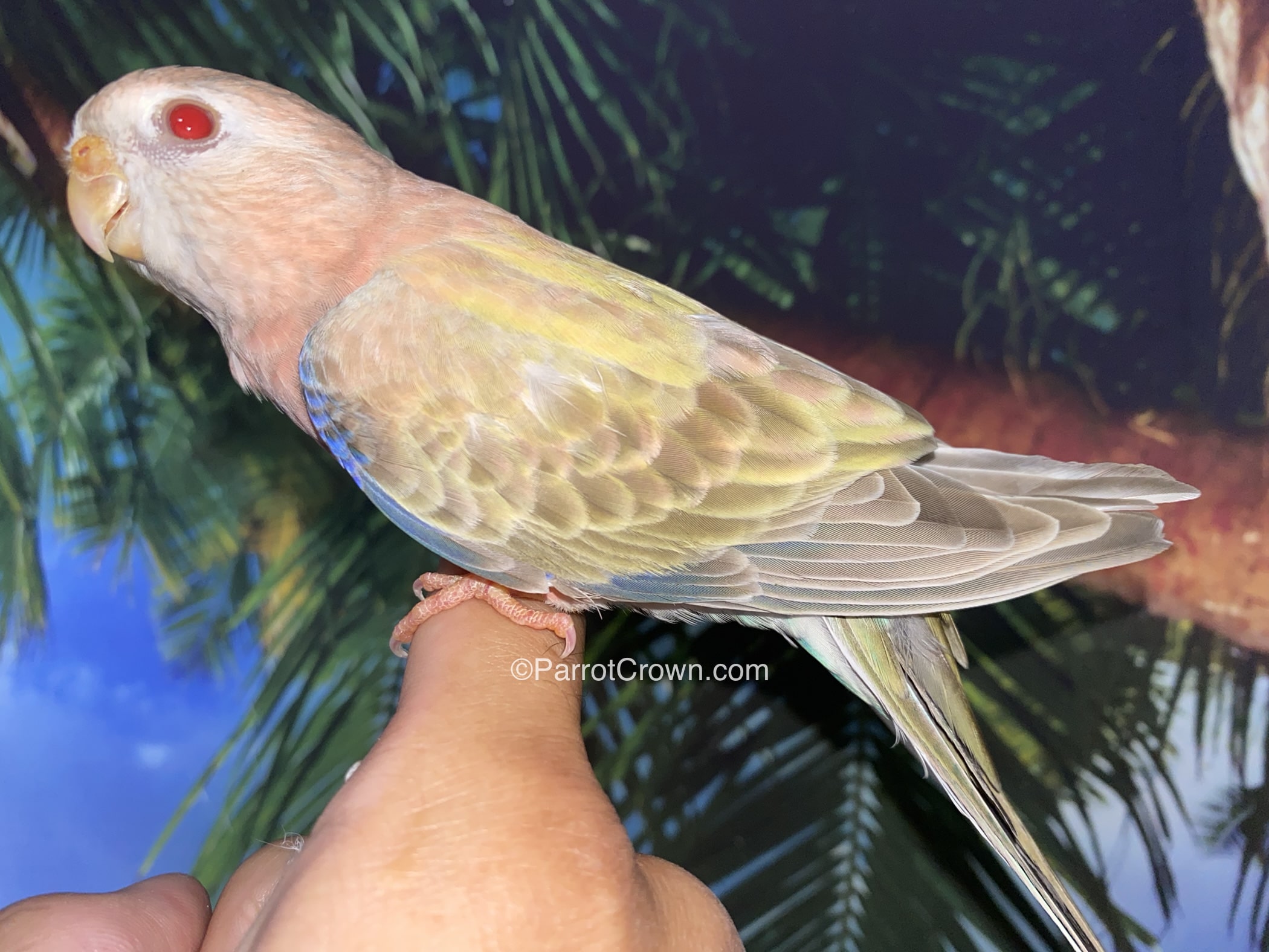
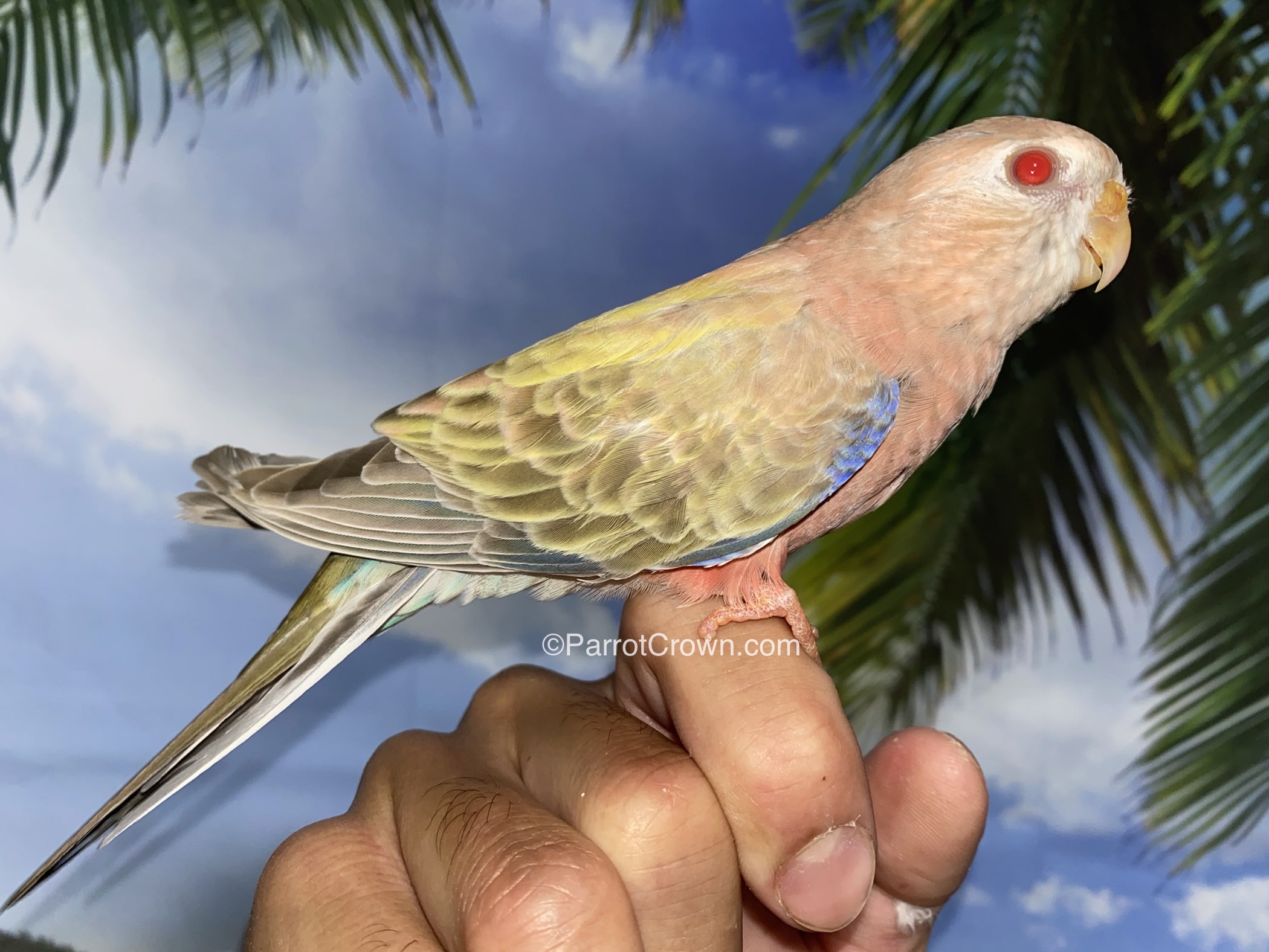
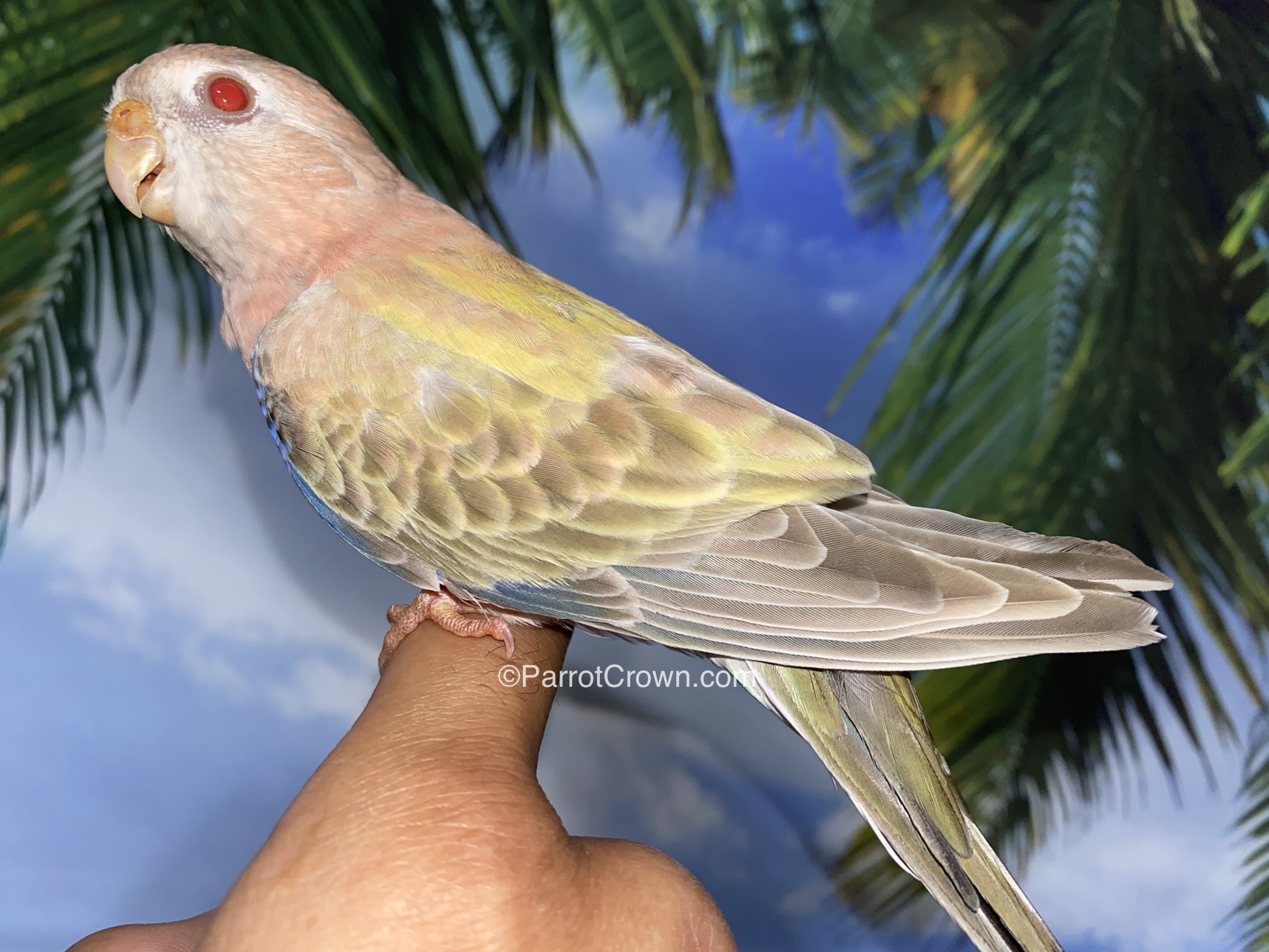
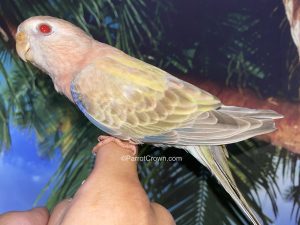
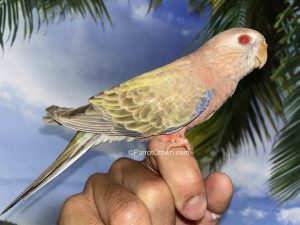
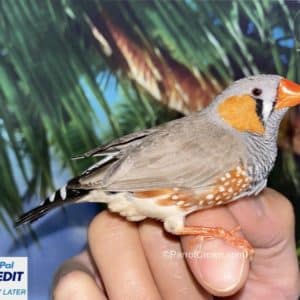
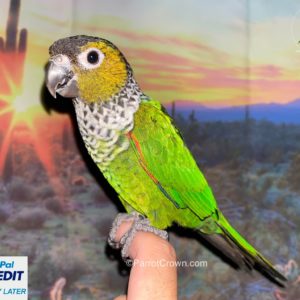
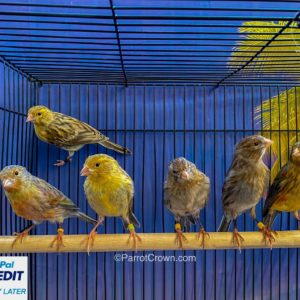
Reviews
There are no reviews yet.